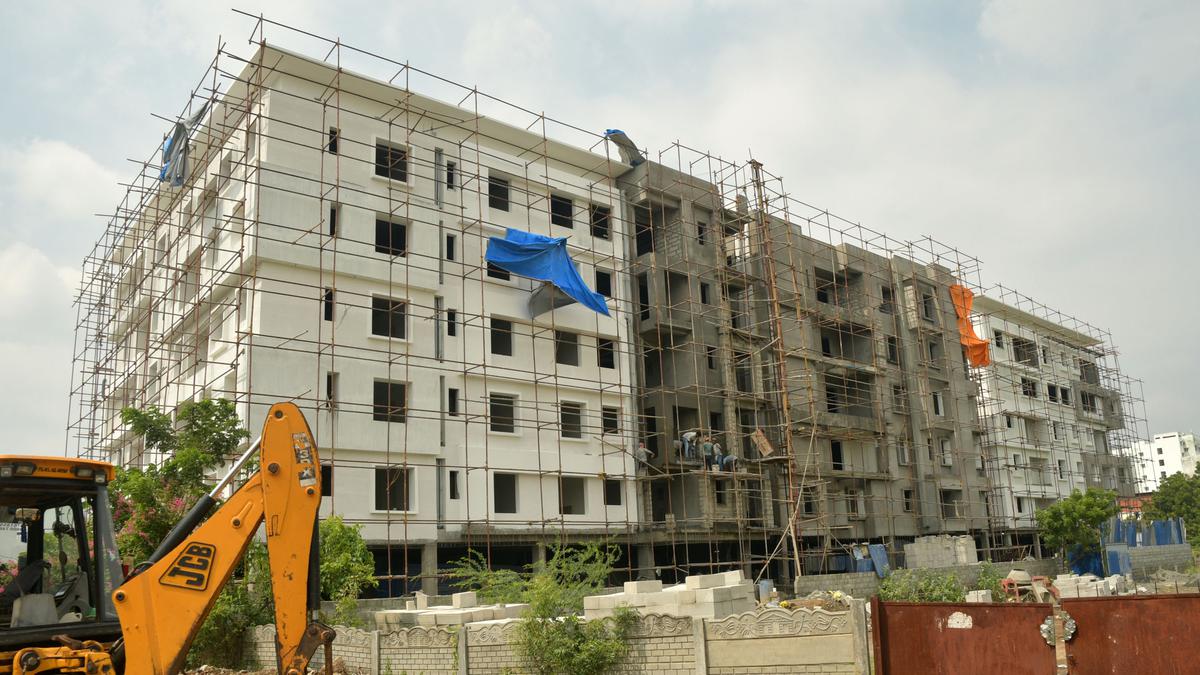
Registration Department revises composite values of apartments in Tiruchi
The Hindu
The Registration Department has revised the composite values of apartments in different areas of the city to compute the stamp duty and registration fee for document registration
The Registration Department has revised the composite values of apartments in different areas of the city to compute the stamp duty and registration fee for document registration.
As per a recent notification, Tiruchi has been categorised into seven broad areas for ascertaining the composite values of apartments. Values have been fixed for the areas right from Melur in Srirangam and Thiruvanaikoil, Nachikurichi in Woraiyur to Tharanallur and Pirattiyur to Kallikudi. The minimum composite value is ₹4,000 per sq. ft. and the maximum is ₹7,500 per sq. ft. in Tiruchi. Flats under construction on Thillai Nagar 10-A Cross command the highest composite value at ₹7,500 per sq. ft. Nachikurichi, Devadhanam, Kambarasampettai and Shanmuga Nagar West Extension have been brought under the lowest composite value category with ₹4,000 per sq. ft. The composite value for flats being built in Eden Garden, Kallikudi South, Viswas Nagar, Panayakurichi, M.M. Nagar, Sami Nagar, Ayyanchetti Street, Kumbakonam Salai, M.R.R. Nagar in Bikshandarkoil will be ₹4,500 per sq. ft.
Thiru Nagar, Edamalaipatti Pudur West, Thanjavur Road, Sangiliandapuram, Cauvery College Road, Arul Nagar, Vekkali Amman Nagar, Melur Road, Ponni Delta in Thiruvanaikoil and L.I.C. Colony command ₹5,000 per sq. ft. The composite value for Thiru. Vi. Ka Nagar is ₹5,200 per sq. ft. It is ₹5,500 sq. ft. at Keelavannarapettai in Puthur and ₹6,000 per sq. ft. in Raja Colony.
Similarly, as per a recent announcement, the flats valued at less than ₹50 lakh, the stamp duty and registration fees will be 4% and 2% respectively. For the flats, which are more than ₹50 lakh and less than ₹3 crore, the stamp duty and registration will be 5% and 2%. It will be 9% (7% stamp duty and 2% registration fees) for the flats valued above ₹3 crore. The stamp and registration fee will be computed based on the composite value of the areas, where the flats are built.
According to sources, the buyers will have to pay as per the composite value of the flats though the agreed value is less than the composite value.
P. Ravichandran, member of the Confederation of Real Estate Developers’ Association of India, Tiruchi chapter, said that both the agreed value (actual rate) and the composite value of the apartments would be mentioned in the registration documents. However, the buyers would have to pay stamp duty and registration fees as per the composite value only. The composite values in several areas were high. The values should be reduced further, he said.

The Karnataka government has drafted a comprehensive master plan for the integrated development of Kukke Subrahmanya temple, the State’s highest revenue-generating temple managed by the Hindu Religious Institutions and Charitable Endowments Department. The redevelopment initiative is estimated to cost around ₹254 crore and aims to enhance infrastructure and facilities for devotees.












